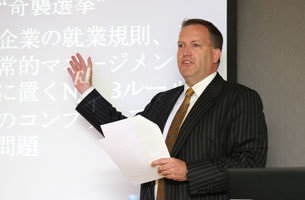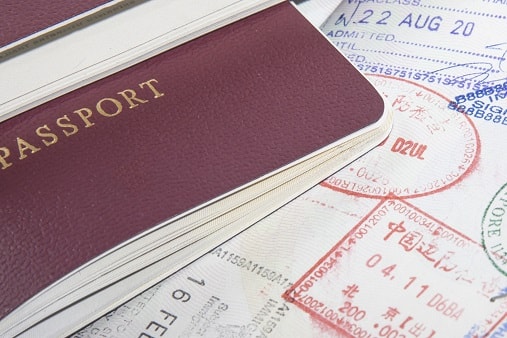ハイライト
The FTC imposed a $2 million penalty, its largest ever for deceptive Made in USA claims
The FTC found parts that were wholly imported or incorporated significant imported materials were wrongly labeled with “USA” as the origin
The FTC also found a failure to update package designs showing Made in USA after production had shifted from the U.S. to overseas
In January 2024, the Federal Trade Commission (FTC) announced in a press release that it imposed a $2 million penalty against Kubota North America Corporation for false labeling of parts as being Made in USA. The FTC said this is the largest ever penalty imposed in a “Made in USA” case.
Under a court order filed by the U.S. Department of Justice on the FTC’s behalf, Kubota must not only pay the penalty, but also institute compliance monitoring, compliance reporting, and cease making unqualified and deceptive Made in USA claims.
This historic settlement is just the latest example of the FTC’s upward trend of enforcement activity involving unqualified Made in USA claims since the publication of its 2021 regulations, which enabled the Commission for the first time to seek civil monetary penalties for these types of violations. This settlement also serves as a reminder to companies that sell and market products, whether they act as an importer or not, to remain vigilant in ensuring unqualified Made in USA statements meet the FTC’s strict “all or virtually all” standard.
Relevant Facts of the FTC Case
According to its complaint, the FTC had sued Kubota many years ago when the company advertised and labeled certain agricultural equipment as made in USA, when in actuality the equipment incorporated significant imported parts. Fast forward to recent years, and the FTC stated it found additional instances of non-compliance in which the company recorded “USA” as the country of origin of agricultural equipment replacement parts that were either wholly imported or incorporated significant imported materials.
The FTC also found that the company had failed to update package designs showing “Made in USA” after shifting production from the U.S. to overseas, and repeatedly engaged in these activities over a period of at least three years.
“Made in USA” Labeling Restrictions
Since its 1997 Enforcement Policy Statement on U.S. Origin Claims, the FTC has routinely applied the all or virtually all standard for evaluating unqualified Made in USA claims. In a 2021 regulation, the FTC codified the standard by prohibiting unqualified Made in USA claims on labels unless: 1) final assembly or processing of the product occurs in the United States, 2) all significant processing that goes into the product occurs in the United States, and 3) all or virtually all ingredients or components of the product are made and sourced in the United States.
The FTC does not have a percentage-based bright-line rule for the all or virtually all standard, meaning a product with a high percentage of U.S. origin content may not meet the all or virtually all standard if the product contains more than a negligible amount of foreign content.
Federal Trade Commission Enforcement Posture
The FTC may seek civil penalties of up to $50,120 per Made in USA Rule violation as an unfair or deceptive act or practice. Since the 2021 regulation, the FTC has brought a series of enforcement actions related to Made in USA labeling and marketing. The previous settlement penalty amounts have ranged from no penalties (closing letters) to $1 million.
In a June 2023 action, the FTC issued a monetary penalty against several related companies that allegedly made deceptive unqualified Made in USA representations for belts, bags, wallets, and shoes sold on the companies’ websites and print materials. In that enforcement action, the FTC worked with U.S. Customs and Border Protection to identify both wholly imported products and products that had undergone only minimal assembly in the U.S. as deceptively marketed Made in USA.
Planning for Future Compliance
Given the latest historic settlement, it is anticipated that future FTC penalty amounts will continue to increase along with the volume of enforcement activity. FTC enforcement actions can begin in unexpected ways, such as anonymous tips being submitted to the FTC by competitors, former employees, or consumers and their representatives. In addition to FTC enforcement at the federal level, some matters may arise from or concurrently with an individual state’s consumer protection laws under which Made in USA claims can be challenged.
Companies that use unqualified Made in USA claims, whether in online marketing, product labeling, or otherwise, can view this latest enforcement action as an opportunity to be proactive and to review whether such claims are compliant with the FTC’s strict all or virtually all standard. Companies may want to reference the FTC’s resources for complying with the Made in USA standard.
To obtain more information, please contact the Barnes & Thornburg attorney with whom you work or Clinton Yu at 202-371-6376 or clinton.yu@btlaw.com, Luis Arandia at 202-408-6909 or luis.arandia@btlaw.com, David Spooner at 202-371-6377 or david.spooner@btlaw.com, or Linda Weinberg at 202-408-6902 or linda.weinberg@btlaw.com.
© 2024 Barnes & Thornburg LLP. All Rights Reserved. This page, and all information on it, is proprietary and the property of Barnes & Thornburg LLP. It may not be reproduced, in any form, without the express written consent of Barnes & Thornburg LLP.
This Barnes & Thornburg LLP publication should not be construed as legal advice or legal opinion on any specific facts or circumstances. The contents are intended for general informational purposes only, and you are urged to consult your own lawyer on any specific legal questions you may have concerning your situation.















